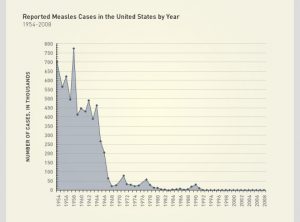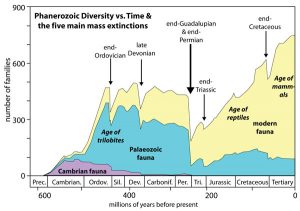Jun
06
2017
 Human thinking is complicated. I further find it ironic that we find it so difficult to think about our own thinking. The reason for this is that we are not aware of all of the processes that go into the workings of our own minds. When you think about it, that makes sense. If we had to monitor the mechanisms by which we process information, and then monitor that monitoring, we would use a lot of mental energy in a potentially endless loop of self inspection. This could easily become paralyzing.
Human thinking is complicated. I further find it ironic that we find it so difficult to think about our own thinking. The reason for this is that we are not aware of all of the processes that go into the workings of our own minds. When you think about it, that makes sense. If we had to monitor the mechanisms by which we process information, and then monitor that monitoring, we would use a lot of mental energy in a potentially endless loop of self inspection. This could easily become paralyzing.
So mostly we engage is automatic subconscious problem solving, which uses simplified algorithms to produce decisions which are fast and good enough, absent awareness of what those algorithms are. When we have the luxury for more introspection we can indulge in some analytical thinking as a check on our intuitions.
Added to this, we have made our own world incredibly complex. In a way we have overwhelmed our own intuitions (what psychologists call system 1 thinking). We are fumbling through complex technological and scientific questions involving a world-spanning civilization with a brain evolved for a much smaller and simpler world. This means we need to rely much more heavily on system 2 thinking – careful analytical thinking. This involves metacognition, or thinking about how we think.
Psychologists Kahneman and Tversky have arguably had the most dramatic effect on the study of decision making starting in 1979. They put forward the whole notion of cognitive biases and heuristics, or mental shortcuts we substitute for careful analytical thought. Continue Reading »
Jun
05
2017
 There is currently a measles outbreak in Minnesota. This was, unfortunately, entirely predictable – not, of course, that an outbreak would occur specifically in Minnesota, but that we would start to see outbreaks in communities with low vaccination rates.
There is currently a measles outbreak in Minnesota. This was, unfortunately, entirely predictable – not, of course, that an outbreak would occur specifically in Minnesota, but that we would start to see outbreaks in communities with low vaccination rates.
So far Minnesota has seen 73 cases of measles. This is more than any year in the last 20 years (or more, that is how far back the tables go). In fact, that is more than all Minnesota cases combined in the last 20 years (56).
Nationwide we hit our low point for measles in 2004 with only 37 cases, all imported from other countries. This means that measles we eliminated from the US, with no native reservoir and no endemic cases. Measles, of course, has not been eradicated from the world and so we can still have imported cases. Thirty seven cases is down from the millions that would occur each year prior to the introduction of vaccines. The graph shows reported cases, which were as high as 800 thousand, but the CDC estimates that the real number was much higher as most cases went unreported.
Continue Reading »
Jun
02
2017
 There have been five major extinctions since the evolution of multicellular life on earth. These are events marked by a geologically rapid loss of biodiversity, the most dramatic of which was the end Permian extinction 245 million years ago with 90% species lost. The other four events had between 19-30% species loss. It is interesting and scary to think how close we came to total extinction in the end-Permian event.
There have been five major extinctions since the evolution of multicellular life on earth. These are events marked by a geologically rapid loss of biodiversity, the most dramatic of which was the end Permian extinction 245 million years ago with 90% species lost. The other four events had between 19-30% species loss. It is interesting and scary to think how close we came to total extinction in the end-Permian event.
The causes of these extinctions vary. Events 1 and 4 were due to volcanic activity. Events 2 and 3 are uncertain but perhaps causes by climate change due to tectonic plate activity. The fifth extinction, the one that wiped out the non-avian dinosaurs 65 million years ago, was mostly due to an asteroid impact.
Many scientists believe we are in the midst of a sixth great extinction event, caused by human activity. It is always difficult to tell when you are in the middle of such an event – it is easier to discern from a perspective after the event is completed. But it’s pretty clear humans are having a dramatic effect on the ecosystems of the world and other species are paying the price.
There have actually been several books titled: The Sixth Extinction. The first, which I read many years ago, is by Niles Eldridge. Most recently, in 2014, Elizabeth Kolbert published a book: The Sixth Extinction, An Unnatural History.
Continue Reading »
Jun
01
2017
 The human brain is plagued with cognitive biases – flaws in how we process information that cause our conclusions to deviate from the most accurate description of reality possible with available evidence. This should be obvious to anyone who interacts with other human beings, especially on hot topics such as politics or religion. You will see such biases at work if you peruse the comments to this blog, which is rather a tame corner of the social media world.
The human brain is plagued with cognitive biases – flaws in how we process information that cause our conclusions to deviate from the most accurate description of reality possible with available evidence. This should be obvious to anyone who interacts with other human beings, especially on hot topics such as politics or religion. You will see such biases at work if you peruse the comments to this blog, which is rather a tame corner of the social media world.
Of course most people assume that they are correct and everyone who disagrees with them is crazy, but that is just another bias.
The ruler of all cognitive biases, in my opinion, is confirmation bias. This is a tendency to notice, accept, and remember information which appears to support an existing belief and to ignore, distort, explain away, or forget information which seems to disconfirm an existing belief. This process works undetected in the background to create the powerful illusion that the facts support our beliefs.
If you are not aware of confirmation bias and do not take active steps to avoid it, it will have a dramatic effect on your perception of reality. Continue Reading »
 Human thinking is complicated. I further find it ironic that we find it so difficult to think about our own thinking. The reason for this is that we are not aware of all of the processes that go into the workings of our own minds. When you think about it, that makes sense. If we had to monitor the mechanisms by which we process information, and then monitor that monitoring, we would use a lot of mental energy in a potentially endless loop of self inspection. This could easily become paralyzing.
Human thinking is complicated. I further find it ironic that we find it so difficult to think about our own thinking. The reason for this is that we are not aware of all of the processes that go into the workings of our own minds. When you think about it, that makes sense. If we had to monitor the mechanisms by which we process information, and then monitor that monitoring, we would use a lot of mental energy in a potentially endless loop of self inspection. This could easily become paralyzing.
 There is currently a measles outbreak in Minnesota. This was, unfortunately, entirely predictable – not, of course, that an outbreak would occur specifically in Minnesota, but that we would start to see outbreaks in communities with low vaccination rates.
There is currently a measles outbreak in Minnesota. This was, unfortunately, entirely predictable – not, of course, that an outbreak would occur specifically in Minnesota, but that we would start to see outbreaks in communities with low vaccination rates. There have been five major extinctions since the evolution of multicellular life on earth. These are events marked by a geologically rapid loss of biodiversity, the most dramatic of which was the end Permian extinction 245 million years ago with 90% species lost. The other four events had between 19-30% species loss. It is interesting and scary to think how close we came to total extinction in the end-Permian event.
There have been five major extinctions since the evolution of multicellular life on earth. These are events marked by a geologically rapid loss of biodiversity, the most dramatic of which was the end Permian extinction 245 million years ago with 90% species lost. The other four events had between 19-30% species loss. It is interesting and scary to think how close we came to total extinction in the end-Permian event. The human brain is plagued with cognitive biases – flaws in how we process information that cause our conclusions to deviate from the most accurate description of reality possible with available evidence. This should be obvious to anyone who interacts with other human beings, especially on hot topics such as politics or religion. You will see such biases at work if you peruse the comments to this blog, which is rather a tame corner of the social media world.
The human brain is plagued with cognitive biases – flaws in how we process information that cause our conclusions to deviate from the most accurate description of reality possible with available evidence. This should be obvious to anyone who interacts with other human beings, especially on hot topics such as politics or religion. You will see such biases at work if you peruse the comments to this blog, which is rather a tame corner of the social media world.




